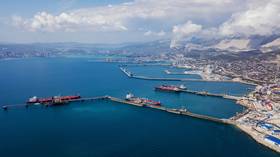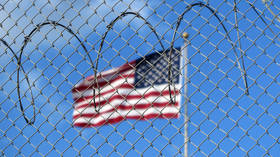US urges G7 to tighten enforcement of Russian oil sanctions – media

The US Treasury Department has called on the G7 to tighten control over the Russian oil trade amid Moscow’s growing shipments, Axios reported on Wednesday, citing a memo.
The G7 and EU countries imposed a price limit on Russian seaborne oil sales last year. The measure bans Western companies from providing insurance and other services to shipments of Russian crude unless the cargo is purchased at or below the $60-per-barrel price cap. Similar restrictions were introduced in February for exports of Russian petroleum products. The measures were intended to substantially reduce Moscow’s energy revenues.
“Russia invested in new shipping capacity that operates without Coalition services, creating more capacity for oil exports priced above the cap,” Deputy Treasury Secretary Wally Adeyemo wrote in the memorandum, which was sent to his counterparts in the coalition of G7 nations and Australia, according to Axios.
“We must adjust our approach to account for the new dynamic,” Adeyemo said.
According to the report, Russian crude oil prices in global markets rose to roughly $80 a barrel in September and October, partly due to Moscow’s investment in its alleged ‘shadow fleet’ of tankers, on which the price restrictions have limited traction.
A recent report from the Atlantic Council reportedly shows that around 70% of Russian oil shipping is now conducted by the ‘shadow fleet’, compared with less than 30% in January 2022.
Axios noted increased enforcement activity towards Russian crude exports in recent weeks, with sanctions targeting several shippers. This is expected to be a key part of what Adeyemo calls phase II of the price cap, the news outlet added.
“We must reduce Russia’s profits through the following two channels: strengthening enforcement for the continued trade of Russian oil with Coalition services, and increasing the costs of Russia’s efforts to circumvent the cap,” the deputy Treasury secretary was quoted as saying in the memo to the G7.
A number of Western officials have admitted that the price cap is currently not working, as Moscow consistently sells its crude for more than the $60-a-barrel limit and its export revenues are higher than expected.
For more stories on economy & finance visit RT's business section












